Last Updated on February 20, 2026 by Michelle
It’s no secret that I’ve become a huge advocate of fresh-milled flour. As a result, I’ve been LOVING using different varieties of grains/flours in my recipes.
To be honest, I think trying new and exciting varieties of wheat berries has been my favorite part of owning my own grain mill! Who knew flour could have so much variety?
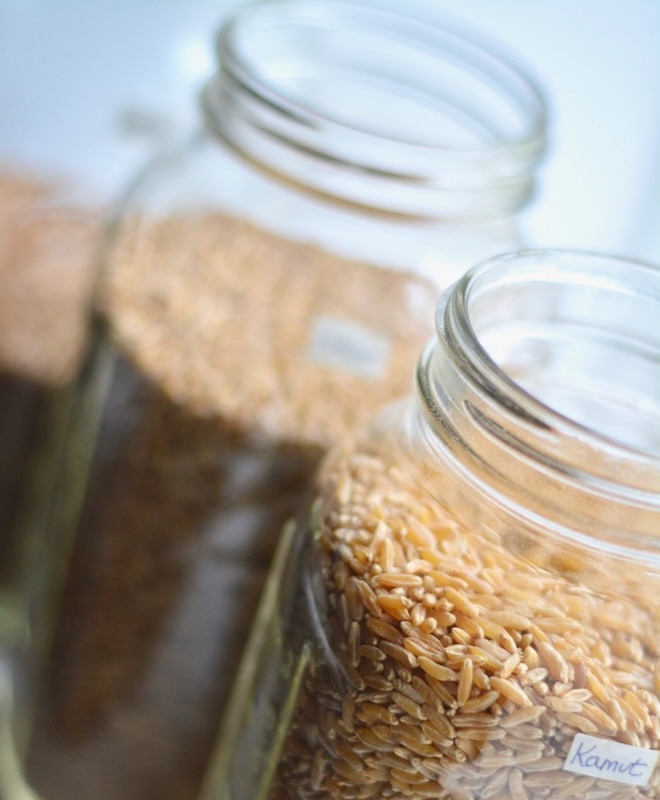
The newest addition to my wheat berry stash is Kamut (pronounced kuh-moot). These Kamut chocolate chip cookies made with fresh-milled, whole wheat Kamut flour are seriously to die for.
Sidenote: Kamut flour would be great for this Crumbl knockoff cookie too. I made some with spelt and soft white wheat berries last night and OH MY WORD. I did tweak the recipe a lot, so I’m going to be sharing my version soon.
It turns out Kamut chocolate chip cookies are the perfect amount of crunchy around the edges, soft and gooey in the middle, and full of flavor thanks to the brown butter and nutty taste of the Kamut. Yum.
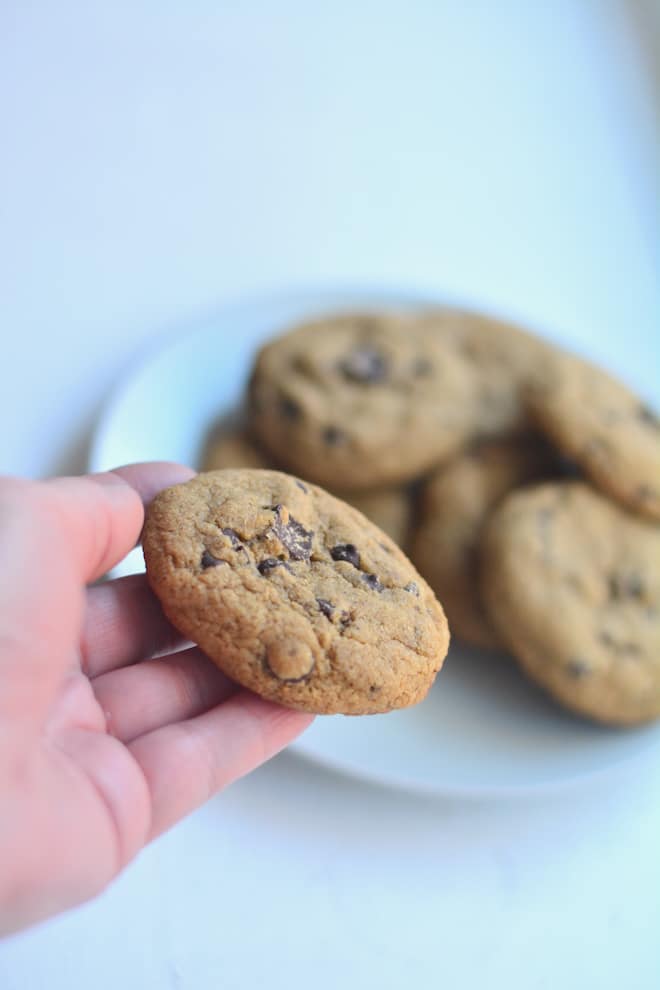
What is Kamut flour?
Let’s talk about Kamut. For starters, Kamut can easily replace all-purpose flour in recipes. Folks say to replace it in a 3:4 ratio with what your all-purpose recipe calls for, but I’ve had good luck replacing it 1:1 in most recipes. Just be aware that you might need slightly less kamut flour than all-purpose flour.
Kamut is an ancient form of wheat that has apparently never been hybridized or genetically modified. It has a distinct buttery, nutty flavor that’s a great addition to all sorts of baked goods. The name “Kamut” is the Egyptian word simply for “wheat.”
Given the fact that Kamut hasn’t been intentionally modified like most other wheat on the market these days, it’s easier for our bodies to digest, and some folks with gluten sensitivities claim they’re able to eat Kamut but not other varieties of wheat.
Kamut vs. Spelt
Similarly to kamut, spelt had been modified very little throughout the years. Both ancient grains, they each offer different benefits. Kamut is generally recognized as having a bolder, more nutty flavor than spelt. However, spelt has a sweeter, more subtle flavor that’s less noticeable in baked goods. Both are great options, just slightly different from each other.
Is khorasan different than Kamut?
In short, Kamut is khorasan wheat. Quite literally, Kamut is a trademarked variety of khorasan wheat. Other varieties of khorasan are also grown in the U.S. The difference between khorasan wheat and Kamut comes down to a trademark. Kamut is an ancient variety of khorasan wheat and a registered trademark owned by Kamut International. The organization was founded by Montana farmer, Bob Quinn, to protect the purity of the heirloom variety of khorasan wheat.
So keep in mind when purchasing Kamut that the wheat berries or flour may be cheaper if it’s labeled “khorasan wheat” rather than “Kamut,” since Kamut is, essentially, a brand name version of the same wheat.
To see what I mean, check out these Kamut brand-name wheat berries vs. the no-name khorasan wheat berries.
A 25-pound bag of Kamut is $49.94 today with Azure, and a 25-pound bag of khorasan is $37.85. So khorasan is on my pantry checklist. Go here to download my full list of the best prices deals on the best ingredients. And over on instagram check out my Azure favorites.
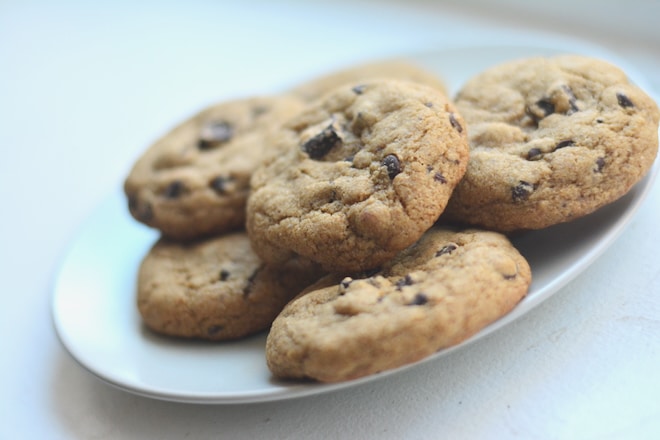
Kamut Chocolate Chip Cookies
Ingredients:
- 3/4 cup butter
- 1 cup brown sugar (I use coconut sugar)
- 1/2 cup sugar (I link my favorite below)
- 1 teaspoon vanilla extract (I link my favorite below)
- 2 eggs
- 2 cups whole wheat Kamut flour (freshly milled, on a fine setting)
- 2 tsp sifted, fine chickpea flour (optional)
- 1/2 teaspoon baking soda
- 2 cups total chocolate chips/chunks of choice (I link my favorite below)
Directions:
- In a saucepan over medium/high heat, melt the butter and continue to cook the butter, stirring frequently, until it foams and you start to see browned bits on the bottom of the pan. Pour into a cooled bowl and set it aside to cool down some.
- Preheat your oven to (shocker) 350 F.
- When the butter isn’t hot to the touch anymore (although admittedly I often move on to this step before I let the butter cool all the way), beat it in a stand mixer with the sugars until it all lightens in color and thickens slightly (2-3 minutes). Add in the vanilla and eggs, and mix until combined.
- Add in the dry ingredients, adding in your chocolate chips only after the dough is the desired texture. Mix in the chocolate chips and form the dough into balls.
- Bake in your hot oven for 10-12 minutes, depending on how crispy you like the edges and how large you shaped the cookies.
- Cool cookies on tray for a few minutes after removing from the oven, then move then to a cooking rack. Enjoy!
Notes About Kamut Chocolate Chip Cookies
- I love using a mixture of different chips in my kamut chocolate chip cookies, for variety: mini chips, semi-sweet/dark/milk chocolate, regular-size chips, chunks, these organic chips, sweetened with coconut sugar, and even super-nutritious cacao nibs.
- Personally, I think Kamut chocolate chip cookies are even better on day #2, as the flavors of the cookie meld and the texture becomes soft, chewy, and… well… perfect.
- Kamut Chocolate Chip Cookies are delicious made with coconut sugar and date sugar as well, in place of cane sugar. (Read more about both of them here.)
- I usually make this recipe with all coconut sugar and no white or brown sugar. In that case, the lightening and slight thickening of your dough happens when all the wet ingredients have been mixing for a minute or two (before adding in the dry ingredients).
- Just fyi, coconut sugar is deliciously sweet, made from the bloom of the coconut tree, not the coconut itself, so it tastes nothing like coconut.
Kamut Chocolate Chip Cookies
Ingredients
- 2 cups whole wheat Kamut flour freshly milled, on a fine setting
- 1/2 teaspoon baking soda
- 3/4 cup butter
- 1 cup brown sugar
- 1/2 cup sugar
- 1 teaspoon vanilla extract
- 2 eggs
- 2 cups total chocolate chips/chunks of choice
Instructions
- In a saucepan over medium/high heat, melt the butter and continue to cook the butter, stirring frequently, until it foams and you start to see browned bits on the bottom of the pan. Pour into a cooled bowl and set it aside to cool down some.
- Preheat your oven to (shocker) 350 F.
- When the butter isn’t hot to the touch anymore (although admittedly I often move on to this step before I let the butter cool all the way), beat it in a stand mixer with the sugars until it all lightens in color and thickens slightly (2-3 minutes). Add in the vanilla and eggs, and mix until combined.
- Add in the dry ingredients, adding in your chocolate chips only after the dough is the desired texture. Mix in the chocolate chips and form the dough into balls.
- Bake in your hot oven for 10-12 minutes, depending on how crispy you like the edges and how large you shaped the cookies.
- Cool cookies on tray for a few minutes after removing from the oven, then move then to a cooking rack. Enjoy!
Notes
- I love using a mixture of different chips in my kamut chocolate chip cookies, for variety: mini chips, semi-sweet/dark/milk chocolate, regular-size chips, chunks, these organic chips, sweetened with coconut sugar, and even super-nutritious cacao nibs.
- Personally, I think Kamut chocolate chip cookies are even better on day #2, as the flavors of the cookie meld and the texture becomes soft, chewy, and… well… perfect.
- Kamut Chocolate Chip Cookies are delicious made with coconut sugar and date sugar as well, in place of cane sugar. (Read more about both of them here.)
- I usually make this recipe with all coconut sugar and no white or brown sugar. In that case, the lightening and slight thickening of your dough happens when all the wet ingredients have been mixing for a minute or two (before adding in the dry ingredients).
- Just fyi, coconut sugar is deliciously sweet, made from the bloom of the coconut tree, not the coconut itself, so it tastes nothing like coconut.
Ingredients in my Kamut Chocolate Chip Cookies

Is Kamut healthier than wheat?
Kamut is a fabulous, more nutritious substitute for “regular” wheat. Kamut offers more proteins, minerals ,and vitamins than wheat.
Is Kamut healthier than oatmeal?
Kamut can be cooked as a great substitute for oatmeal. In fact, it’s superior to oatmeal because it’s higher in vitamin B6, which is important for brain development and a healthy nervous system and immune system.
Is Kamut healthier than quinoa?
Gram per gram, Kamut packs a higher protein punch than even the amazing quinoa. In a 1-cup serving, quinoa offers 8 grams of protein, vs. a huge 9.8 grams from Kamut.
Is Kamut a superfood?
Kamut is absolutely a superfood. It’s full of protein and fiber, which means it’s super filling and nutritious. In addition to providing so many nutritional benefits, this grain is also so versatile, with a nice, nutty flavor. See below some of the great ways you can add Kamut to your diet.
How do you eat Kamut?
I can think of 4 ways to eat Kamut and take full advantage of all its nutrients, but I’m sure there are more. Please comment with others!
- Grind up Kamut wheat berries to use as flour in recipes like these delicious cookies.
- Cook Kamut as a side dish. It offers a nutty flavor that complements the taste and texture of many veggies.
- Cook Kamut as an oatmeal substitute.
- Mix cooked Kamut grains into a tossed in salad. They offer a nutty, healthy addition of whole grains to an already great salad.
Interested in milling your own flour but need a grain mill? These are the three I’ve personally used and recommend:
- The Classic Nutrimill does a great job, at the lowest price point.
- The Harvest Mill wins for most beautiful to sit on your counter.
- And the Mockmill is a beautiful workhorse that wins for best engineered, best at milling alternative grains, and finest flour, but it also sits at the highest price point.
P.s. If you’re interested in a Nutrimill, code “SOULYRESTED” will save you cash
More About Fresh Flour
Sourdough bread made with fresh milled flour
Homemade tortillas made with fresh flour
Chocolate chip cookies made with fresh flour
Why I started milling my own flour
Curious about Kamut? Learn all about Kamut/Khorasan here.

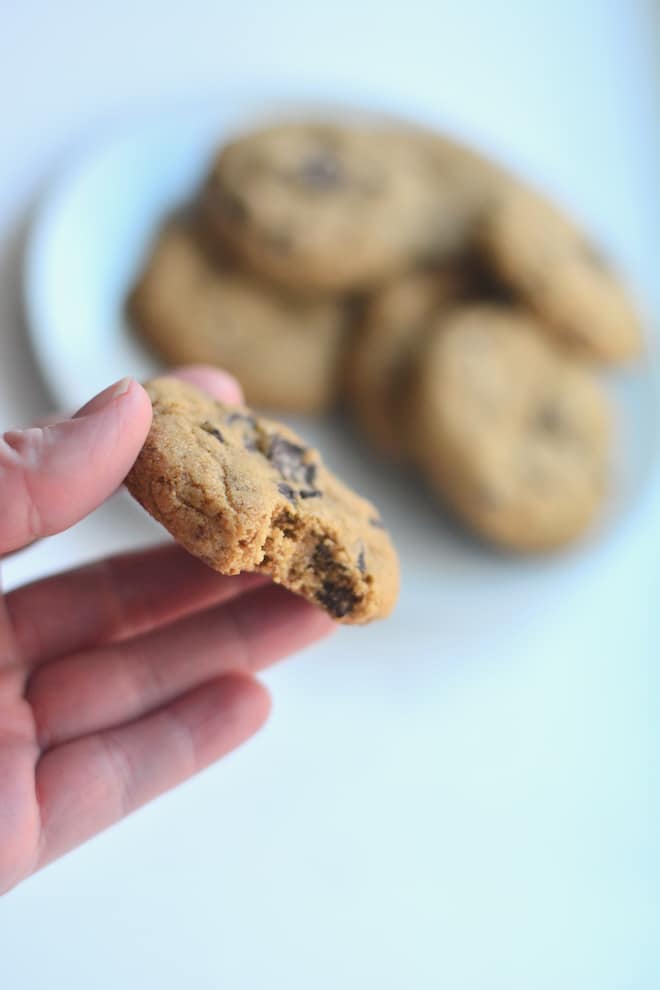

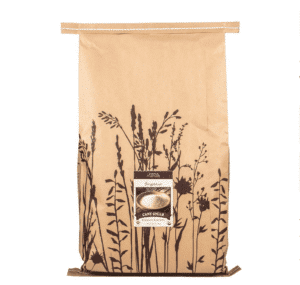
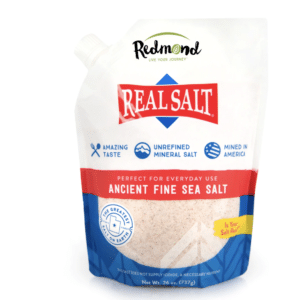

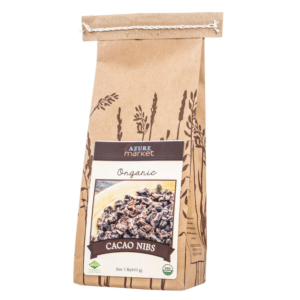
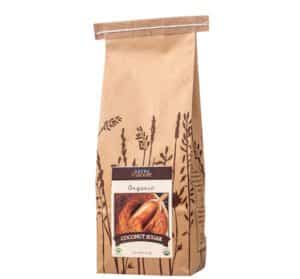

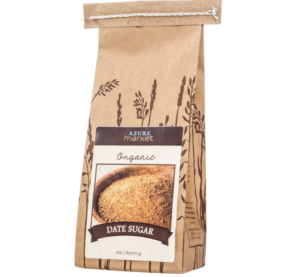
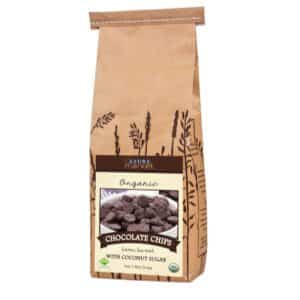
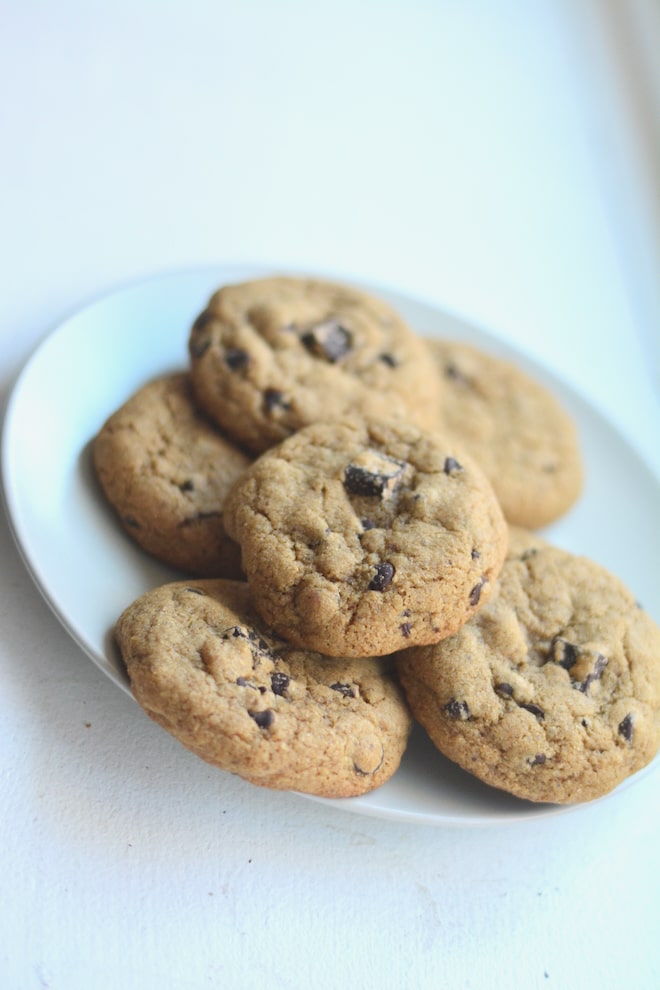
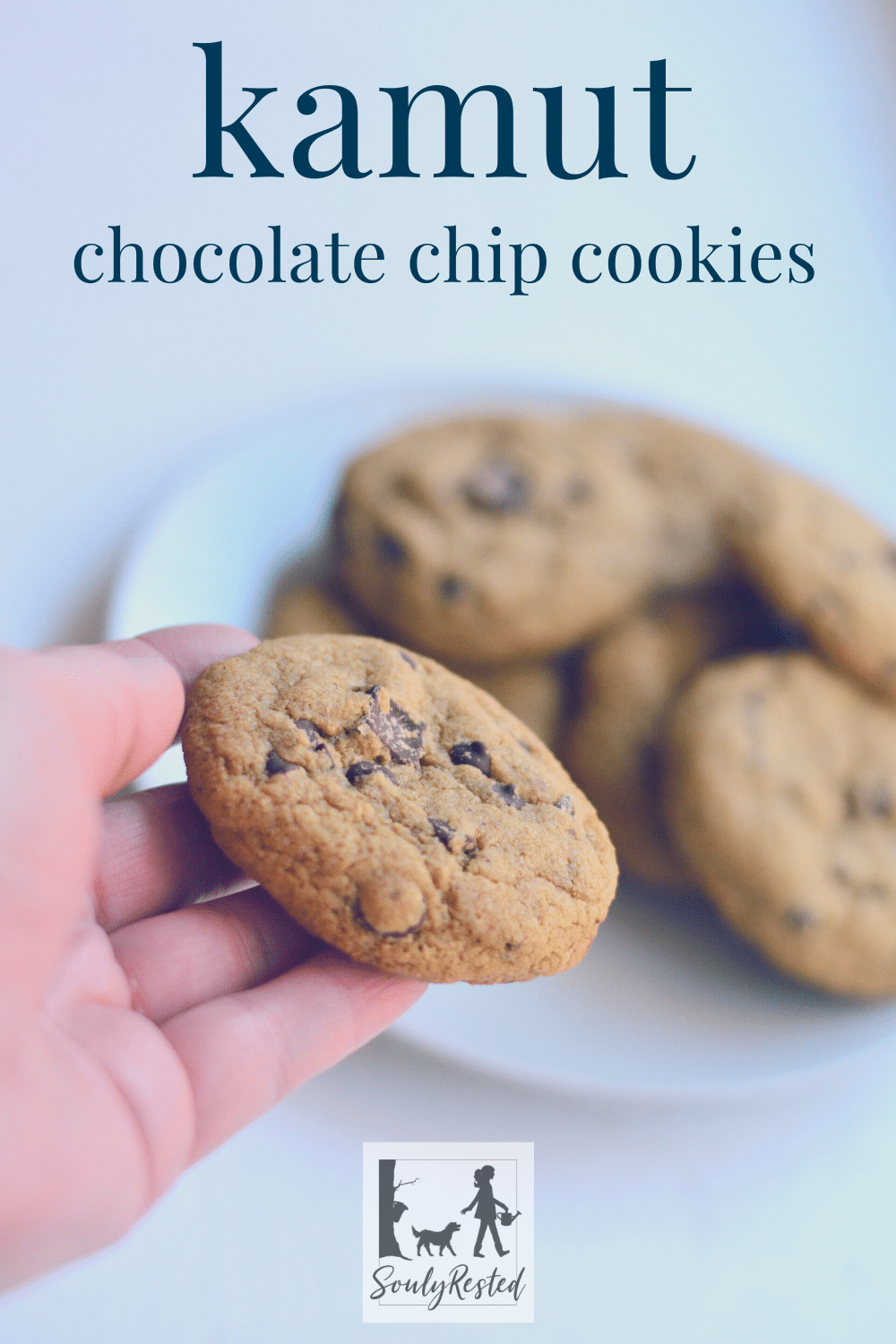
Pingback: Sourdough Discard Cookies (Easy Chocolate Chip) • Homestead Lady
Hi Michelle, I was so excited about these cookies but they just turned out flat flat flat for me. How do I get them to hold their shape? The flavor is really good, and I still give it 5 stars because I’ve never had luck with any fresh milled cookie recipe turning out anything but flat. Any ideas?
that is honestly everyone’s biggest struggle with ff cookies… I’m honestly surprized I didn’t have chickpea flour in this recipe! I think I will add it so future folks don’t have flat runny cookies… I had it on autopilot for my cookies… 1 tsp of sifted, fine chickpea flour per every cup of flour should help you a lot. (just dried chickpeas… also called “garbonzo beans”… read your mill’s instructional manual to make sure it can make chickpea flour)